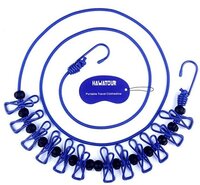

9 Helpful Tips to Self-Study a Foreign Language in 2022
Have you ever heard the sentence “The best way to learn a foreign language is by studying abroad,” and thought . . .
Well, uh . . . . And if that’s not a possibility for me?
Traveling abroad is not always an accessible option whether it be for financial, medical, or other reasons – but that doesn’t mean you can’t still learn a foreign language! The benefits of studying abroad and living in a place where people speak your target language is the idea of immersion.
Language immersion is a method of language acquisition in which you completely surround yourself with the language you are learning. By fully immersing yourself in the language, you’re able to learn conversational speech and slang, specific vocabulary that you don’t necessarily get taught in the classroom, and the ability to complete day-to-day functions in a foreign language.
Last updated: 5/23/2022
Although language immersion is typically associated with studying or living abroad, it does not have to be! It is completely possible to immerse yourself in a language through self-study and achieve significant language gains. Experiencing language immersion at home when self-studying a foreign language is attainable if you set yourself up for it successfully and stick to a language pledge.
What does that entail exactly? Learn how to self-study a foreign language through immersion completely at home with my 9 tips below!
9 Tips to Self-Study a Foreign Language in 2022



1. Make a realistic self-study plan before you start
I know this sounds obvious, but forming a plan is the most important part in order to achieve your language goals. Like any trip you take, you need to know where you’re starting from, where your destination is, and how to get from point A to point B. If you start your self-study process without first building a road map, hitting any kind of roadblock can make you feel lost and frustrated.
When I studied Russian through the Critical Language Scholarship (CLS) Program, we all had to complete SMART goals before the program started and this was incredibly helpful. SMART goals not only help you build the road from point A to point B, but also gives you the confidence you need to start learning a language.
So, what are SMART goals? Check out the list below and MindTools’ video to get an idea of what questions you should be asking yourself when forming you language self-study plan.
SMART GOALS
- Specific
- Measurable
- Achievable
- Relevant
- Time bound
When searching for a plan of what topics to study and in what order, look at online textbooks! Almost all textbooks will have the table of contents pages for free, so you can see how professional textbook writers have decided to guide their readers through the language. You don’t need to reinvent the wheel and create a course curriculum from scratch.











2. Do a thorough job of researching content that aligns with your interests before you start
Before you get started, find some well-rated TV shows, movies, music, books that interest you so you don’t get bored. How many times have you opened up Netflix looking for a good movie in English to watch, ended up scrolling for an hour, and then calling it a night because you didn’t find the perfect match?
If you approach foreign media with the same game-plan, you will likely have the same outcome. Spend a few hours finding artists, musicians, actors, authors, etc. who make content that align with your interests. For example, if you like listening to true crime podcasts in your free time, find one in your target language! You still get your crime-junkie fix and it counts as studying – score!
For inspiration, try searching for articles like these in your target language:
Top Russian YouTubers to Help You Learn Russian
10 Authentic Vloggers to Teach You Real Russian
15 Great Russian Musicians in 2020 That You Will Love
Best Russian TV Shows on Netflix and Amazon Prime (2021)
Depending on your level, you can even trying searching in your target language to see what media exists not only for students studying the language, but for native speakers as well. So spend some time researching and give yourself a substantial “playlist” of media to consume during your study time. This way, you’re sure to never get bored since you picked it out specifically based on your interests.













3. Create new Instagram, Twitter, and Reddit accounts that only follow users who speak your target language
Social media is an excellent way to see how native speakers interact online and what phrases and expressions they use to communicate – so use it!
The only problem is that if you want to use social media to learn a foreign language, you need to make sure you’re truly immersed in it with no English distractions on your feed. This is why I recommend creating all new social media accounts for the purposes of your foreign language self-study.
The most important rule – do NOT follow English speakers! This way, if you want to scroll through social media during your language pledge time (which you absolutely should!) you won’t accidentally read an English caption. Similarly to my previous point, if you follow accounts that are similar to those you follow on your personal accounts, you have the opportunity to learn more vocabulary that aligns with your interests.











4. Use apps like Tandem and iTalki to talk to native speakers
Unless you’re learning a dead language like Latin or Ancient Greek, you need to practice speaking in your target language regularly. I know it is scary, but hey – that’s language learning! It is scary and vulnerable and makes you feel nervous to the point where you don’t want to speak (Ironically, the opposite of what you’re trying to do!). But as I’m sure you know, it is #important.
Apps like iTalki and Tandem are free to use and connect you with native speakers of your target language for mutual benefit. This means that you don’t need to feel bad about taking up their time, making mistakes, etc. because you will be helping them learn English as well! If you’re reading this and you’re fluent/conversational in English, I promise you will have no trouble at all finding a speaking partner on these apps. Within the first day of downloading Tandem, I got 50+ messages from native Russian speakers wanting to practice their English with me and help me with my Russian. It was a bit overwhelming at first, but it is such a convenient way to practice your speaking skills.
If you’re worried about people judging you or making mistakes, just remember – Do you judge people who make mistakes when they speak English? No – So why do you think they would with you? Your language partner is in the exact same spot as you – learning a foreign language and making mistakes with a native speaker. Focus on consistency rather than accuracy. Just showing up is half the battle.











5. Make use of a language journal – Do NOT spend more time designing it than necessary
Creating a language journal can help you keep track of helpful vocabulary, important grammar points, and other notes you take when studying a foreign language. I won’t go into too much detail here because everyone has their own method of taking and organizing notes, but I do recommend checking out how other people format theirs.
Pick and choose ideas from different YouTubers, bloggers, polyglots, etc. and incorporate them into your language journal. The one thing that I can’t stress enough, however, – do not spend an ungodly amount of time making it cute and pretty and aesthetically pleasing. I know it is tempting to see the bullet journals online and think “Oh yes, I should go buy all these colorful pens, and stickers, and stencils to make it perfect,” but you’re not doing this to perfect your illustration skills. It is much more productive to focus your time on your target language.
If you don’t want to put in the time to make your own, check out my Language Learning Workbook and Planner below!











6. Document your progress along the way
Don’t wait until the end of your language goal period to look back on all you’ve learned. Give yourself regular reference points to show how far you’ve already come so that you stay energized and motivated to continue towards your goal.
This is where your language journal will come in handy!
a. Set aside time each week to review what you learned in previous weeks.
Remember when you used to ask the teacher if the final was cumulative and then would always pout when the answer was ‘yes’ (just me?) There’s a simple reason why final exams are typically cumulative – Because if they weren’t, you’d study for the test, and then forget everything the next day. You need to review material consistently in order to master it and eventually be able to use it in your speech. Plus – After a few weeks of returning to revise old material, you’ll be able to see the progress you’ve made as they become more and more familiar.
b. Record yourself as much as you can
I know that no one likes to hear the sound of your own voice, but I can’t express how satisfying it is to hear an old language recording of yourself and thinking “Wow, I am SO much better than I was then!” It is like 50% a diss to your old self and 50% a high-five to your current self, but it is solid proof that your pronunciation, conversational abilities, and vocabulary have improved.
c. Try to journal as frequently as you can
If you’re camera/microphone shy, try journaling before bed and writing what you did that day. Start with lists, grow to sentences, and then build up to streams of consciousness. You’ll be amazed when you go back and see where you started.
d. Find a proficiency test to take at the various stages of your learning
If you’re a super type-A language learner and you want rock-solid proof that you’ve improved, try finding an online proficiency exam you can take throughout your studies. Take the exam before you begin your self-study and at custom intervals until the end of your SMART goal time period. With a proficiency exam, you can compare your scores at each stage and see how you’ve grown.













7. Be your own David Attenborough
Narrating your actions as you do them is a sneaky-helpful way to practice talking about yourself. If you don’t know how to translate an action you’re doing during the day, look it up and jot it down. This is a great exercise, especially for beginners to learn to talk about your daily routine.











8. Don’t try to memorize words without proper context
You can be a walking dictionary, but if you don’t know when or how to use all your new words then you won’t be able to hold a proper conversation. Here are a few tips for doing just this:
- Organize your vocabulary lists by topic – This way you don’t have free-floating vocabulary with no easy way of finding it when you need it.
- Don’t just write one part of speech by itself. – If it is a noun, what verbs or prepositions can be used with it? If it a verb, can it take a direct object or an indirect object? Write them down together so you have fixed phrases rather than random words here and there.
- Don’t go dictionary diving – If you want vocabulary to talk about a certain topic, better search the internet or a book on the subject. You never know how a word’s meaning can change if not in the proper context, and if you are searching by their translations alone, you might not get that context.
- Use websites like ReversoContext or en.openrussian.org for example sentences to see how a word is used in speech













9. Treat yo-self as you go
Rewarding yourself consistently throughout your language learning journey is such a critical part of making progress! Just as you schedule your curriculum and the time you spend working on your language acquisition, you should also schedule when to “treat yo’ self” and pride yourself on your work.
This is incredibly hard to do by yourself, but the fact that you’re setting up this regime and attempting to uphold it is admirable. Give yourself a break, and do the best you can.











Extra Resources
Well, there you have it! I wish you all the luck in the world with your language learning, and I hope this article helped! Here is a list of articles with some great tips and tricks to help you in your self-study journey:
How to Learn a Language by Self-Study – Fluent in 3 months
17+ Incredibly Effective Language Hacks for the Self-Taught Polyglot (or ANY Language Learner)
100 Best Language Self-Learning Resources
Can you think of any other helpful tips for self-studying a language? Leave them in the comments below!
See ya #onthebloc,
Melissa
Learn to speak russian
Travel with ease & dive into the culture, history & lifestyle of post-Soviet countries
free russian learning materials

Melissa

Get the Goods
Head over to the Language & Travel Shop to check out my favorite goodies I use for learning Russian and traveling! I've compiled all my favorite products I use when #onthebloc so that you can benefit from them when you travel abroad. Help yourself prepare and support this blog at the same time :) Счастливого пути!




carry-on goods
gifts for travelers
photography
apparel & accessories
textbooks & readers
luggage & bags

categories
#oTB essentials

Russian-Speaking Travel Destinations
use your new russian skills in real life!

Belarus
EASTERN EUROPE
central Asia
central Asia





Eurasia
Russia
Kyrgyzstan
armenia
Moldova
Kazakhstan
eastern europe
read »
read »
read »
read »
read »
read »
The caucasus
travel guides
Get your FREE #OnTheBloc Starter Kit!
Sign up for the NGB Monthly Newsletter & you'll get a FREE downloadable PDF with Russian language and travel resources for your post-Soviet journey!
оставаться на связи














